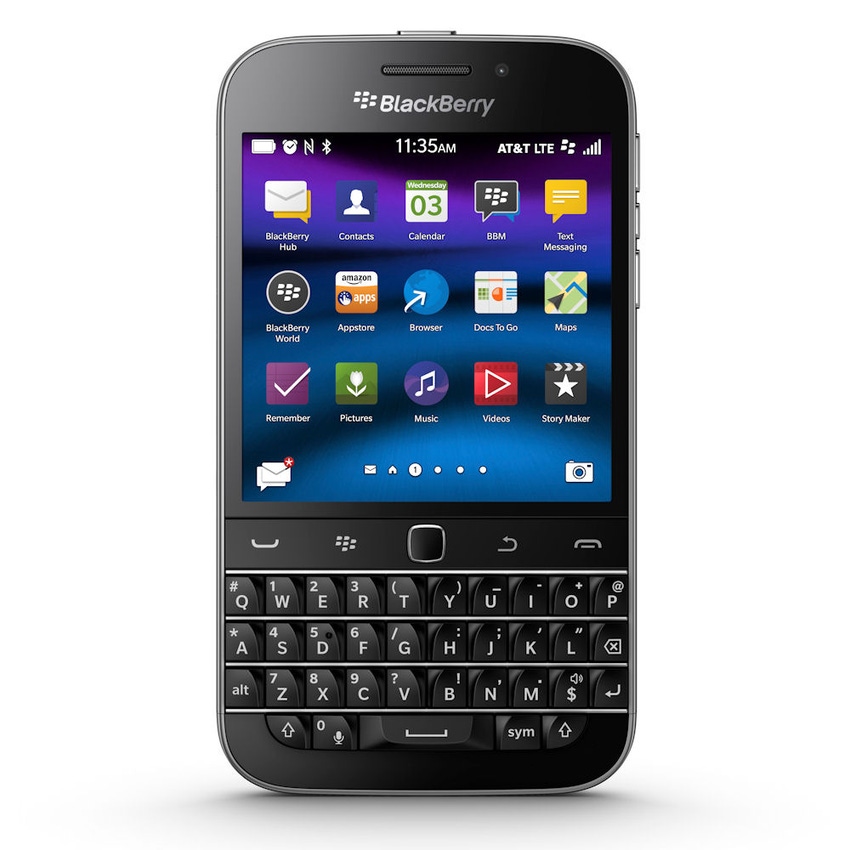End of an era as BlackBerry pulls the plug on its hard keyboard Classic
Canadian mobile device company BlackBerry seems to have signalled the end of the smartphone physical keyboard by announcing it will no longer manufacture its Classic handset.
July 6, 2016

Canadian mobile device company BlackBerry seems to have signalled the end of the smartphone physical keyboard by announcing it will no longer manufacture its Classic handset.
BlackBerry launched the Classic at the end of 2014, having concluded there was sufficient nostalgia towards its historically popular Bold models to justify persisting with the fixed, hard keyboard synonymous with BlackBerry’s most successful period a decade or so ago.
“BlackBerry Classic is the powerful communications tool that many BlackBerry Bold and Curve users have been waiting for,” said CEO John Chen at the time. “It’s the secure device that feels familiar in their hands, with the added performance and agility they need to be competitive in today’s busy world.”
The appeal to nostalgia was prompted by BlackBerry’s previous move towards full touchscreen devices running its BB 10 OS. Having belatedly acknowledged that the market had moved on from hard keyboards, some explanation for the launch of the Classic was required.
But just 18 months later Ralph Pini, COO and GM of Devices at BlackBerry, blogged that “Change is only natural: a classic model makes way”. “…the Classic has long surpassed the average lifespan for a smartphone in today’s market,” he said. “We are ready for this change so we can give our customers something better – entrenched in our legacy in security and pedigree in making the most productive smartphones.
Pini seems to be referring to the form-factor more than the Classic itself, which was positioned as an evolution of the BlackBerry Bold 9900 when it was launched. There have been subsequent BlackBerry smartphone launched with physical keyboards, such as the first Android-based Priv, but even that has moved to full touchscreen in the latest version.
He seems to be keen to avoid the impression that it has totally given up on the hard keyboard but that seems the clear inference from this announcement. The unique thing about BlackBerry devices is that, despite very few new ones being sold, there is a lot of nostalgia towards them and a hard keyboard does improve productivity for many people.
BlackBerry has been stuck between a rock and a hard place ever since iOS and Android revolutionised the smartphone market in 2007-8. Their superior touchscreen experience and app stores rendered BlackBerry devices obsolete overnight and the company was far too slow to respond. In addition the move towards bring-your-own-device policies at most companies BlackBerry’s best channel – the corporate market – diminished massively.
Many people would still like to use a BlackBerry with a physical keyboard for their work email but companies are no longer willing to provide them and they’re not prepared to forgo the advantages of Android or iOS on their personal devices.
The latest Android-based BlackBerry’s aren’t bad, but they’re relatively chunky and expensive and like all other Android devices, struggle for differentiation. If BlackBerry had made that move back in 2008, maybe things would have been different, but the fortunes of smartphone vendors like HTC, Motorola and Sony since then imply otherwise.
About the Author(s)
You May Also Like











_1.jpg?width=300&auto=webp&quality=80&disable=upscale)


.png?width=800&auto=webp&quality=80&disable=upscale)